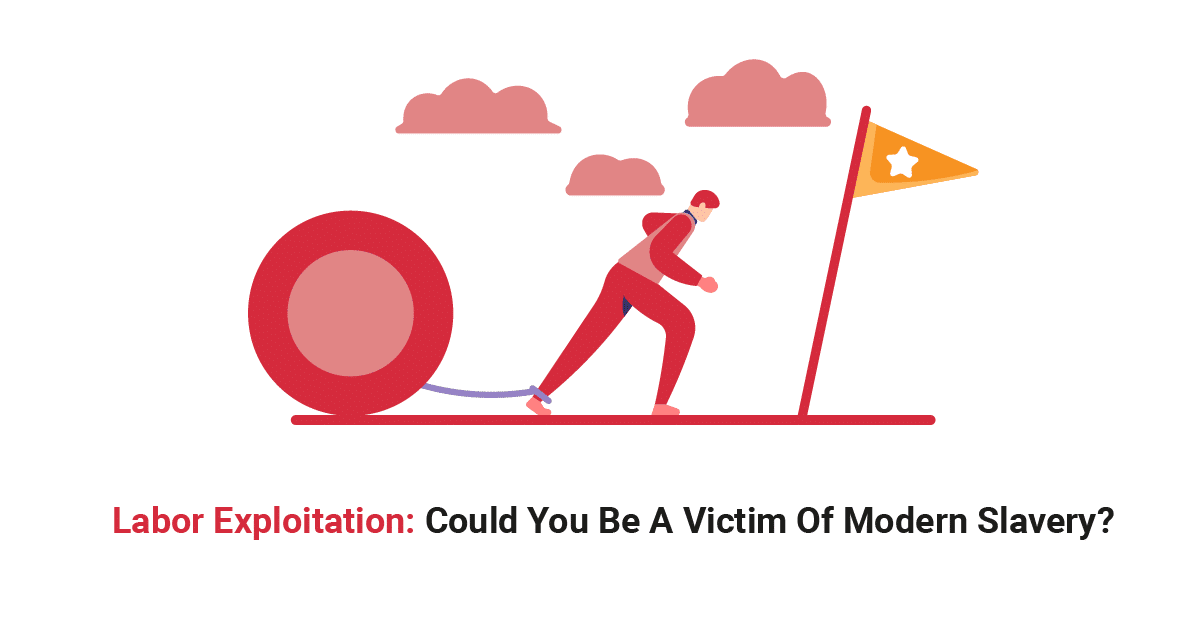Are You Being Exploited At Your Workplace?
Recently, Medical interns all over Uganda joined hands to protest against a new government policy proposing that private students would not be provided any allowances during their internship placements. The students that equated themselves to “slaves” and the conditions they had to work in extremely, “poor”, stressed that the policy was utterly unfair. As much as slavery is something often associated with the past, anyone can become a victim of this infamous ancient trade in their workplace today and this could not just be in the case of an intern that is often looked at as some sort of cheap labor but a permanent worker as well.
Despite the fact that we all need to survive and, therefore, have to work hard to earn a living, one should never be subjected to being a slave at their workplace. Working hard and being a slave to a system that doesn’t appreciate your hard work are two completely different things. It is important to know when you are fulfilling your duty and when you are being exploited. Here’s how to know you are being exploited at your workplace:
1.Are you being fairly paid?
The most common type of exploitation at work is one not being paid or being underpaid for their labor. Although most people desire to be employed and would not mind having any job as long as it pays the bills, one needs to know their worth and demand to be paid fairly. If one is paid very low compared to the experience, qualifications they have and job tasks they have to perform, this is exploitation. 2.
2.Are you Overwhelmed?
Being busy and a bit stressed is something normal in many work settings. However, sometimes the situation is just a bit too much; for example, your employer demanding quite too much in a short period of time that you find yourself stretched to the limit is not always a good thing. Every employer has the duty of ensuring their employees are allocated with a workload that they can handle. No matter how much one is being paid, their workload should be manageable. Working for long hours without any breaks or periods to rest is very overwhelming for anyone.
3.Are you performing other people’s duties?
In many cases, fellow workmates have a tendency to bully each other and this sometimes includes passing on their duties and responsibilities. Taking on other people’s duties without a good reason such as them being on leave or are sick is considered exploitation. Should you take on another duty, ensure there is some sort of compensation or viable explanation as to why you have to take it on and not to give someone else free time.
4.Are you working over time?
Working over time is one of those situations at any workplace that cannot really be avoided. However, if your employer constantly expects you to work over time and they are not providing any sort of compensation for it, they are really exploiting you as you have a right to have your personal time as well to rest and pursue other endeavors of your own.
5.Are you carrying out duties that are unrelated to the organization?
If an employer or workmate often expects you to run errands such as pick up their children or pick up their laundry which is completely unrelated to your job or the progress of the organization, chances are high that you are being exploited. They have no right to demand that you perform their personal errands or duties outside your contract.
6.Are you underappreciated?
Many times this may not be considered as some sort of exploitation but it actually is. Even when someone is paid fairly, they will always remain unhappy and stressed at their workplace if their work is constantly unappreciated. Every worker wishes to feel valued at their workplace and if they are not or they spend all day not actually doing any work it denies them the opportunity of gaining the experience they need to progress in their career. This makes anyone depressed and reduces their productivity.
7.Do you take credit for your work?
If you are caught up in a situation where you are the one always doing the hard work but never credited for it, or recognized for it but someone else is, chances are high you are being exploited. One’s ideas and contribution to the success of the company always have to go noticed and recommended in order to keep motivating them.
8.Are you asked to take on unreasonable demands?
Unreasonable or unrealistic demands could be one’s supervisor demanding for sex in order for one to be promoted or an employer demanding one to complete a certain piece of workload in a short time or simply to perform work that one cannot realistically perform. Such demands cause a lot of stress to the victim and often hinder their work performance or productivity.
9.Are you an Intern or simply Cheap labor?
In many cases, interns or people holding volunteer positions are the victims of work exploitation. Such people are often considered to be cheap labor and are given all sorts of tasks without any compensation. As an intern or voluntary worker, one is simply meant to learn, shadow another’s job and gain experience from working with their mentor or supervisor. It is different from one’s mentor or supervisor leaving all their workload to them and demanding they perform their job duties. Interns and voluntary workers need to know what exactly their role is in the workplace in order not to fall victim to being exploited and that making them cheap labor is illegal.
Now that one is aware of the various ways they can be exploited at work, how then do they deal with the situation should they realize they are a victim of this kind of modern slavery?
1.Find out why you are the subject of work exploitation:
Dealing with exploitation begins by knowing exactly why some people are more susceptible to being a victim than another and what exactly could be the root cause of the habit. Here are some theories to explain this:
- Younger workers are more likely to be exploited than older workers as they are viewed not to have enough experience and can be easily convinced to perform a certain duty.
- Ignorant workers that are not informed and do not seek to find out what their exact scope of work can also fall victim to exploitation.
- If one always sympathizes with other people too much and is always willing to help, chances are high that some people can take advantage of that person. One needs to know their limit.
- If one is too ambitious and tends to present themselves as one that can do anything as long as it helps them grow in their career, other people may tend to take advantage of that.
- Some people can also use the leverage of having good relationships with someone to exploit them for example if one’s relative, spouse or good friend can exploit them and they will not notice as they look at in terms of doing favors for those close to them.
- One who likes to do work on their own and feels the need to always make a significant contribution can also be victim to exploitation.
- People in higher or influential positions like the rich or elderly are also likely to be a target of exploitation as others would want to create relationships with them that are simply to their advantage.
2.What danger does this exploitation cause to you and the other person involved:
After figuring out why and who exactly is exploiting you, it is important to know at what point the exploitation is and how much danger it is causing you. Being aware of this enables you to know exactly how to deal with the situation.
For example, if the form of exploitation has been going on for a short time and is not as serious, one can consider resolving the issue between them and the other party amicably without involving management.
However, if the form of exploitation is a very serious case or the other party seems not to stop the habit, one could consider letting their Human Resource manager, a legal advisor or labor union about the situation.
3.Set boundaries:
Knowing the information mentioned above helps one to know exactly what labor exploitation entails. With this information, one, is, therefore, able to know where they need to set boundaries and what those boundaries should be to avoid being a victim in the future. It always important for one to command respect at their workplace and set their boundaries and expectations meant to protect them at the workplace.
4.Ensure you are not trapped in the cycle:
Very many times employees are taken advantage of because they remain trapped in the exploitation cycle and do not seek to break away from it. Some employers usually exploit the reality that employees often choose to remain with their jobs because they feel they cannot go anywhere to take advantage of them.
In order to break through the cycle one can:
- Look at the situation objectively and whether you are being continually manipulated.
- Step away from the situation to further look at it more objectively before going ahead and concluding whether someone else has been taking advantage of you or not.
- One should not blame themselves for being a victim of the exploitation.
- Think about other possible options or jobs they can for apart from the one they may have.
5.Conduct a stealth job search:
Should one try all they can to resolve the issue but keep being exploited or their organization ignores their requests, it might be time to begin looking elsewhere
Although this may be difficult to do basing on the scarcity of jobs, one should remember that their wellbeing and health are the most important. If one is constantly subjected to poor working conditions at their workplace that put them in danger, emotional or physical distress, leaving the job in question is far much better.
Various Ugandan labor laws are clearly against any form of exploitation at the workplace and also go ahead and protect workers being taken advantage of. Should you happen to be a victim of this source of modern slavery, do not keep quiet! Seek help.









